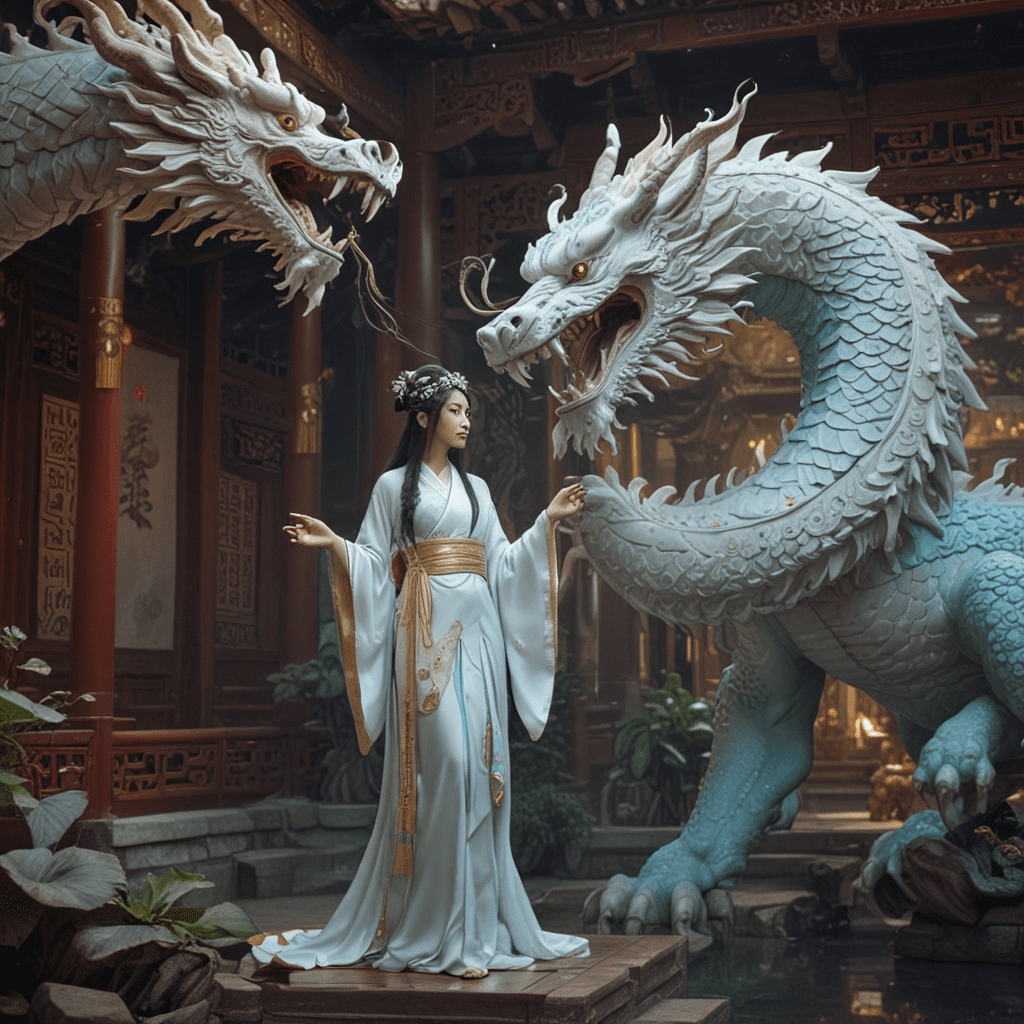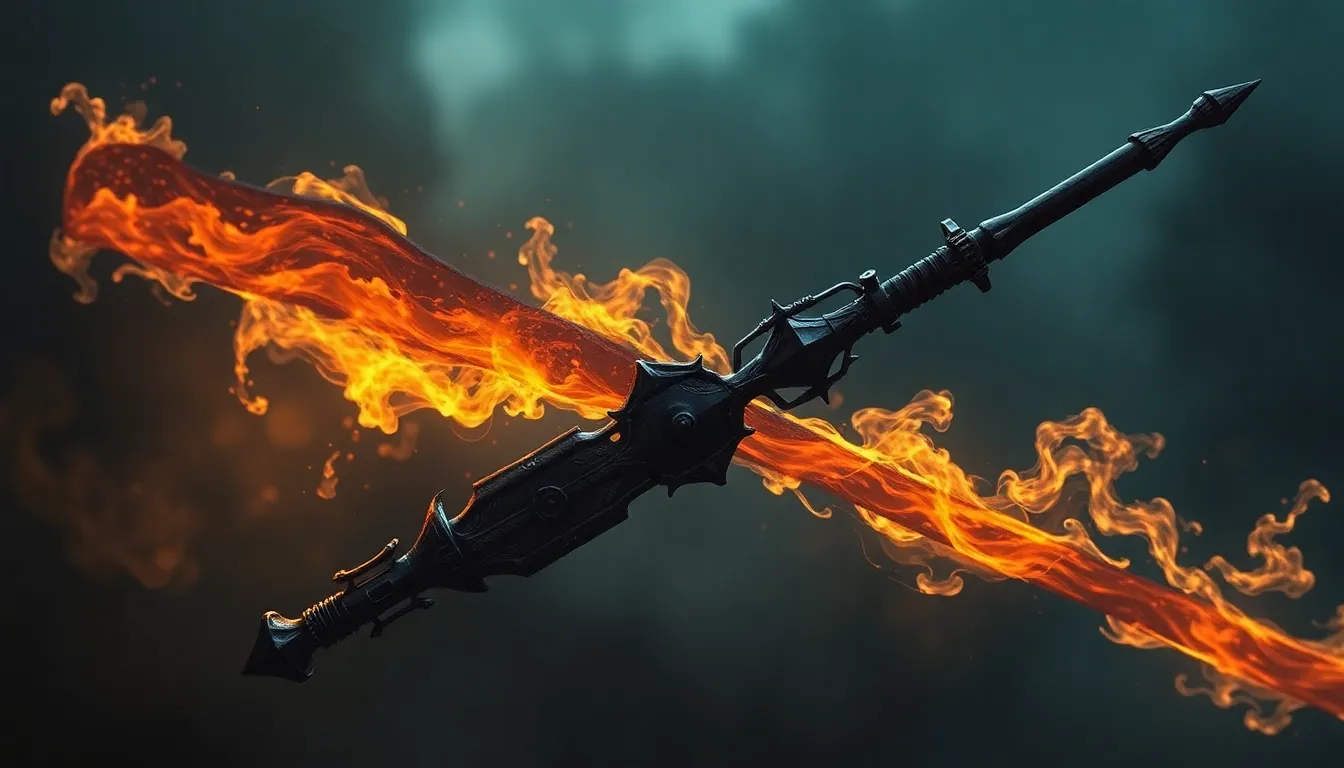I. Introduction
In the tapestry of Chinese mythology, the enigmatic figures of Nüwa and Fuxi stand tall as celestial architects who shaped the world from chaos into form. Their tale, passed down through generations, is a poignant tapestry of creation, sacrifice, and the enduring spirit of humanity.
II. The Birth and Appearance of Nüwa and Fuxi
Legends ascribe the birth of Nüwa and Fuxi to the primordial god Pangu. As Pangu's body transformed into the mountains, rivers, and sky, his essence condensed into two figures: Nüwa and her brother, Fuxi. Nüwa emerged with the delicate features of a woman, her body adorned with serpentine scales and a tail. Fuxi, her counterpart, bore the visage of a man with a human head and dragon body.
III. The Creation of the Earth
Chaos reigned supreme when Nüwa and Fuxi came into being. The earth lay fractured, and the sky was a vast expanse of darkness. Determined to bring order, Nüwa gathered five-colored stones and used them to mend the heavens. Her celestial repairs forever stabilized the cosmic dome and separated it from the earth below.
IV. The Creation of Humans
With the earth stabilized, Nüwa and Fuxi turned their attention to populating the desolate world. Nüwa molded figures out of yellow clay, infusing them with the spark of life. These figures, the first humans, emerged as diverse as their creator, with varying appearances and abilities.
V. Nüwa’s Role in the Human World
Nüwa's nurturing nature extended beyond the creation of humans. She taught them the practical arts of life, such as marriage, family, and agriculture. She also introduced the principles of music and dance, bringing solace and joy to her creations.
VI. Fuxi’s Role in the Human World
Fuxi's contributions to the human world were equally profound. As a wise and benevolent ruler, he established social order, taught the principles of divinatory practices, and introduced the concept of marriage and family. His understanding of the natural world led to the development of the eight trigrams, which formed the cornerstone of Chinese cosmology and divination.
VII. Nüwa’s Sacrifice to Save the Heavens
A catastrophic flood once threatened to destroy the heavens and the earth. Courageously, Nüwa sacrificed her body to mend the sky once more, using her own stones to fill the gaps. Her selfless act saved the world, but forever left a scar on the fabric of the heavens, visible as the Milky Way.
VIII. Fuxi’s Contributions to Civilization
Fuxi's ingenuity extended beyond the realm of human affairs. He is credited with inventing fishing nets, traps, and the plow, revolutionizing the way humans interacted with their environment and ensured a sustainable livelihood. His teachings on astronomy and the calendar marked the beginning of scientific inquiry in ancient China.
IX. The Relationship between Nüwa and Fuxi
The nature of the relationship between Nüwa and Fuxi has been a subject of debate for centuries. Some legends portray them as siblings, while others suggest a romantic entanglement. Regardless of their familial or romantic affiliations, their shared bond as divine creators and protectors of humanity remains unbreakable.
X. Conclusion: The Legacy of Nüwa and Fuxi
The tale of Nüwa and Fuxi is a testament to the enduring human fascination with the origins of life and the forces that shape the world. Their story has been told and retold for millennia, inspiring countless works of art, literature, and religious devotion. As celestial architects, Nüwa and Fuxi left an indelible mark on Chinese culture, their legacy serving as a reminder of the boundless potential of creation and sacrifice.
FAQ
-
Who created the earth and humans in Chinese mythology?
Nüwa and Fuxi -
What did Nüwa use to mend the sky?
Five-colored stones -
What is Fuxi known for inventing?
Fishing nets, traps, and the plow
-
Are Nüwa and Fuxi related?
Yes, they are believed to be siblings or romantic partners depending on the legend. -
What does the Milky Way represent in Chinese mythology?
The scar left by Nüwa's sacrifice to mend the sky



